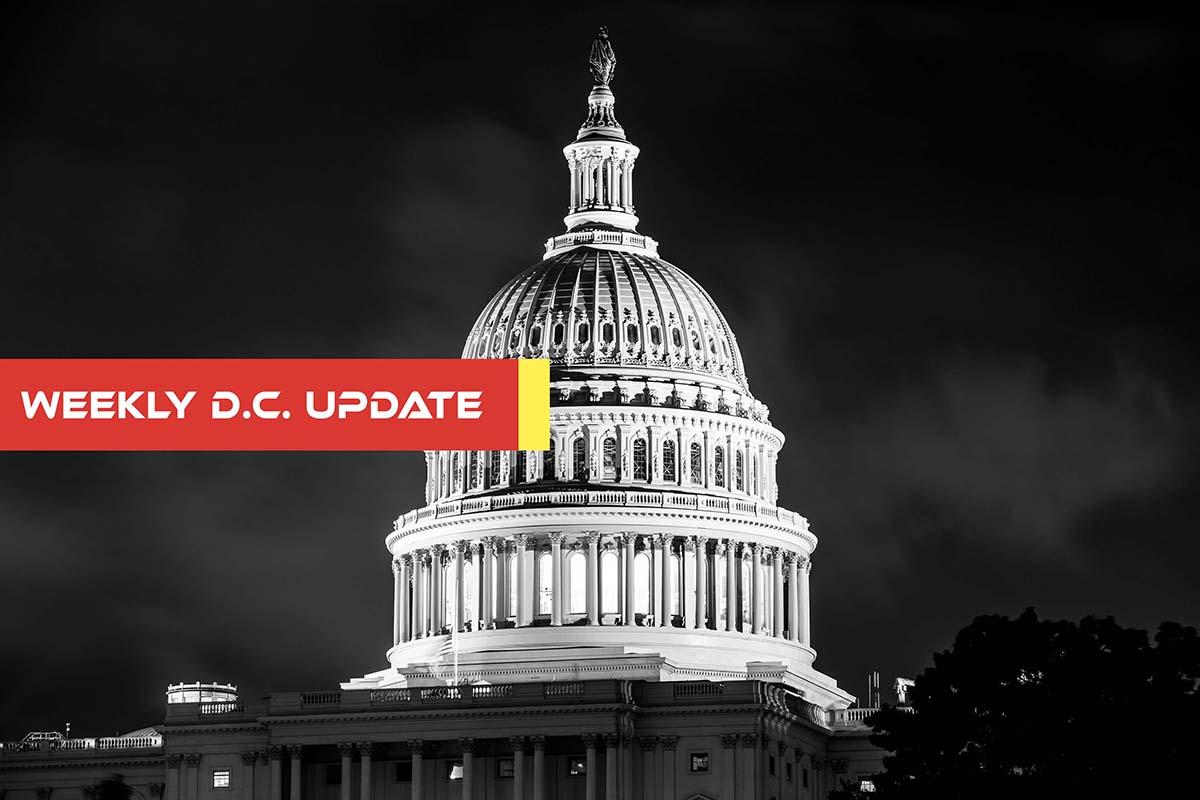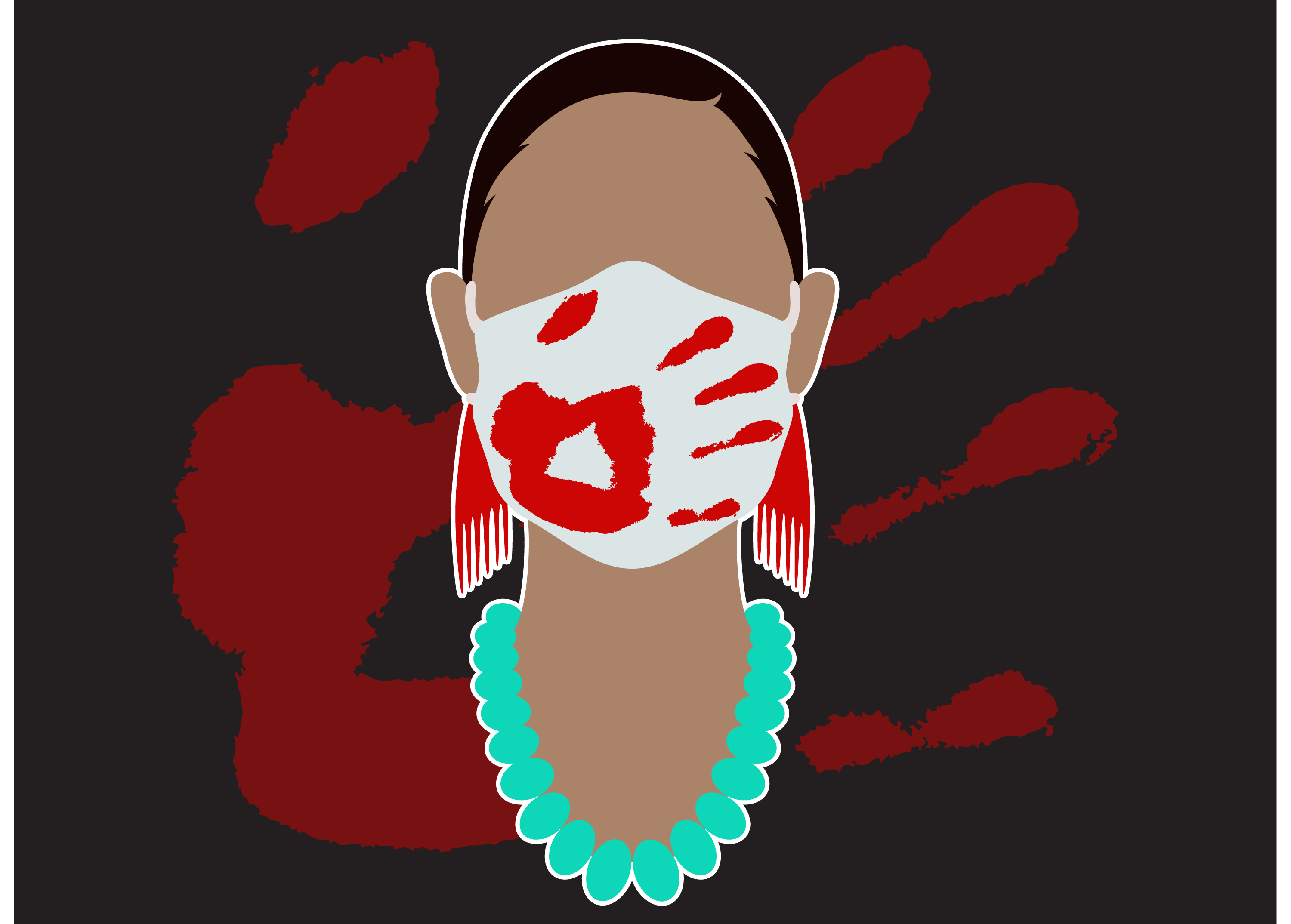
- Details
- By Native News Online Staff
Interior Sec. Deb Haaland Begins Implementation of ‘Not Invisible Act’
Secretary of the Interior Deb Haaland announced on Thursday that the Interior Dept. will begin to implement the Not Invisible Act, including establishing a Joint Commission led by the Departments of the Interior and Justice on reducing violent crime against American Indians and Alaska Natives.
Enacted by Congress last fall, the Act will increase intergovernmental coordination to identify and combat violent crime against Indians and within Indian lands. The Act calls for the Interior Department to coordinate prevention efforts, grants, and programs related to missing and murdered Indigenous peoples.
Secretary Haaland was the lead sponsor of the Not Invisible Act when she served in Congress. The bill was passed unanimously by voice vote in both chambers of Congress.
“A lack of urgency, transparency, and coordination has hampered our country’s efforts to combat violence against American Indians and Alaska Natives,” Secretary Haaland said. “In partnership with the Justice Department and with extensive engagement with Tribes and other stakeholders, Interior will marshal our resources to finally address the crisis of violence against Indigenous peoples.”
Thursday’s announcement follows Secretary Haaland’s recent formation of a new Missing & Murdered Unit (MMU) within the Bureau of Indian Affairs Office of Justice Services (BIA-OJS) to provide leadership and direction for cross-departmental and interagency work involving missing and murdered American Indians and Alaska Natives. The MMU will help put the full weight of the federal government into investigating these cases and marshal law enforcement resources across federal agencies and throughout Indian country.
NCAI President Joined World Leaders at the White House Leaders Summit on Climate
National Congress of American Indians President Fawn Sharp joined world leaders at the White House Leaders Summit on Climate hosted by President Joe Biden on Earth Day, April 22, to highlight the dramatic effects of climate change on Tribal Nations and the importance of tribal sovereignty and traditional knowledge in combating those effects.
Sharp was part of a discussion with Indigenous leaders from Brazil and Chad, and local government leaders from Mexico, France, Japan, and the U.S. to examine holistic responses to the climate crisis while at the same time creating opportunities for economic growth and respecting tribal sovereignty in a breakout session titled “Climate Action at All Levels.”
She emphasized the grave impacts of climate change on Tribal Nations, and the specific climate challenges she has navigated as a leader of the Quinault Indian Nation since taking office 15 years ago.
“Tribal Nations and communities are truly a brain trust of millennia-old ideas and practices. We share centuries of timeless and ancient wisdom and knowledge on how to best confront the impacts of climate change,” Sharp said. “I look forward to a robust discussion leading to full, creative, holistic, and inclusive actions that respect our communities, respect and honor tribal sovereignty and propel our economies into a bright, prosperous, and sustainable future, a future that our ancestors dreamed of and a future that generations to be born to deserve.”
Indian Affairs Announces Distribution Plan for $850 Million to Bureau of Indian Education Funded Schools
Principal Deputy Assistant Secretary – Indian Affairs Bryan Newland on Friday announced the Bureau of Indian Education’s plan for disbursing $850 million provided by the American Rescue Plan (ARP) Act, signed on March 11, 2021, by President Biden.
The funds, which BIE began disbursing this past week, were designated to BIE-funded K-12 schools and Tribally Controlled Colleges and Universities (TCUs).
“This much-needed financial support will aid our ability to help the Tribal communities we serve recover more quickly from the pandemic’s wide-ranging impact on them,” Newland said. “ARP funds are vitally important for alleviating strains imposed by the COVID-19 pandemic on BIE students and their families, as well as on teachers, administrators, and staff in our K-12 schools and at the TCUs.”
According to the BIE’s allocation plan for the $850 million it received under the Act:
- $535.5 million will go to the 183 K-12 schools in its school system based on the Weighted Student Unit formula,
- $229.5 million will go to TCUs based on student count, and
- $85 million will be managed by BIE School Operations for investments, such as the buildout of a Learning Management System and facility ventilation improvement projects.
The BIE is using the same set of allowable costs identified by the U.S. Department of Education for CARES Act funding, which are outlined on the Bureau of Indian Affairs website: BIE Implementation of American Rescue Plan Funding.
Congressman Introduces Resolution to Recognize Eagle Staff as the First Flag of Tribal Nations
Rep. Raja Krishnamoorthi (D-IL) reintroduced a resolution to recognize the Eagle Staff as the first flag of the sovereign Native American tribal nations and encourage programs promoting its cultural significance.
The Eagle Staff, often carried by Native American veterans, consists of a shepherd’s staff wrapped in either otter skin or buffalo skin and eagle feathers.
“Our Native American communities have suffered, especially during this pandemic, and this recognition of a significant tradition and symbol I hope send a message of love and support to them,” Rep. Krishnamoorthi said.
“For generations, the Eagle Staff has represented the Native American communities, and it is long overdue for the United States Government pay its respects in this way. This flag represents tribal sovereignty, unity, and tradition, and the strength of the Native American community makes the entire United States stronger,” Rep. Krishnamoorthi continued.
The text of the resolution is available here.
More Stories Like This
Native News Weekly (August 25, 2024): D.C. BriefsUS Presidents in Their Own Words Concerning American Indians
Two Murdered on Colville Indian Reservation
NDAA passes House; Lumbee Fairness Act Advances
NFL, Vikings to Host Native All-American Game, Youth Flag Clinic
Help us defend tribal sovereignty.
At Native News Online, our mission is rooted in telling the stories that strengthen sovereignty and uplift Indigenous voices — not just at year’s end, but every single day.
Because of your generosity last year, we were able to keep our reporters on the ground in tribal communities, at national gatherings and in the halls of Congress — covering the issues that matter most to Indian Country: sovereignty, culture, education, health and economic opportunity.
That support sustained us through a tough year in 2025. Now, as we look to the year ahead, we need your help right now to ensure warrior journalism remains strong — reporting that defends tribal sovereignty, amplifies Native truth, and holds power accountable.
 The stakes couldn't be higher. Your support keeps Native voices heard, Native stories told and Native sovereignty defended.
The stakes couldn't be higher. Your support keeps Native voices heard, Native stories told and Native sovereignty defended.
Stand with Warrior Journalism today.
Levi Rickert (Potawatomi), Editor & Publisher

